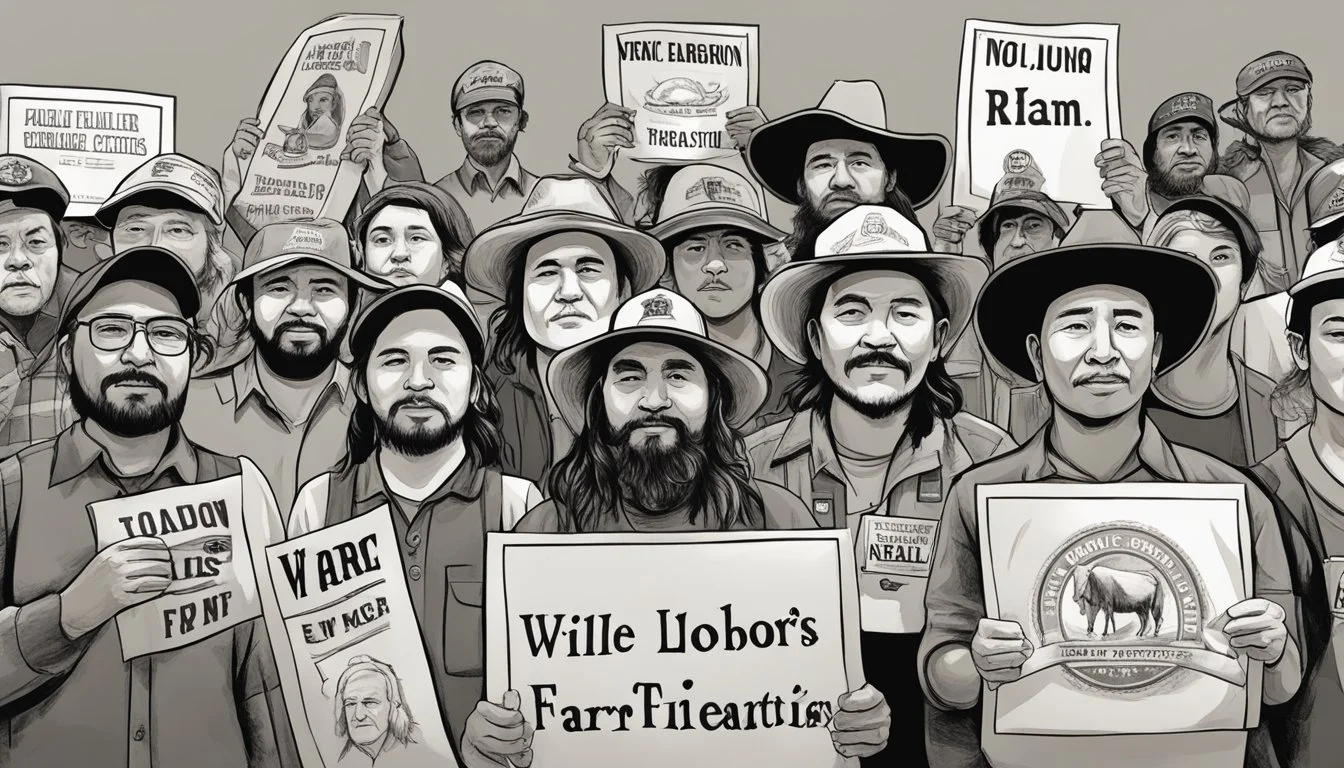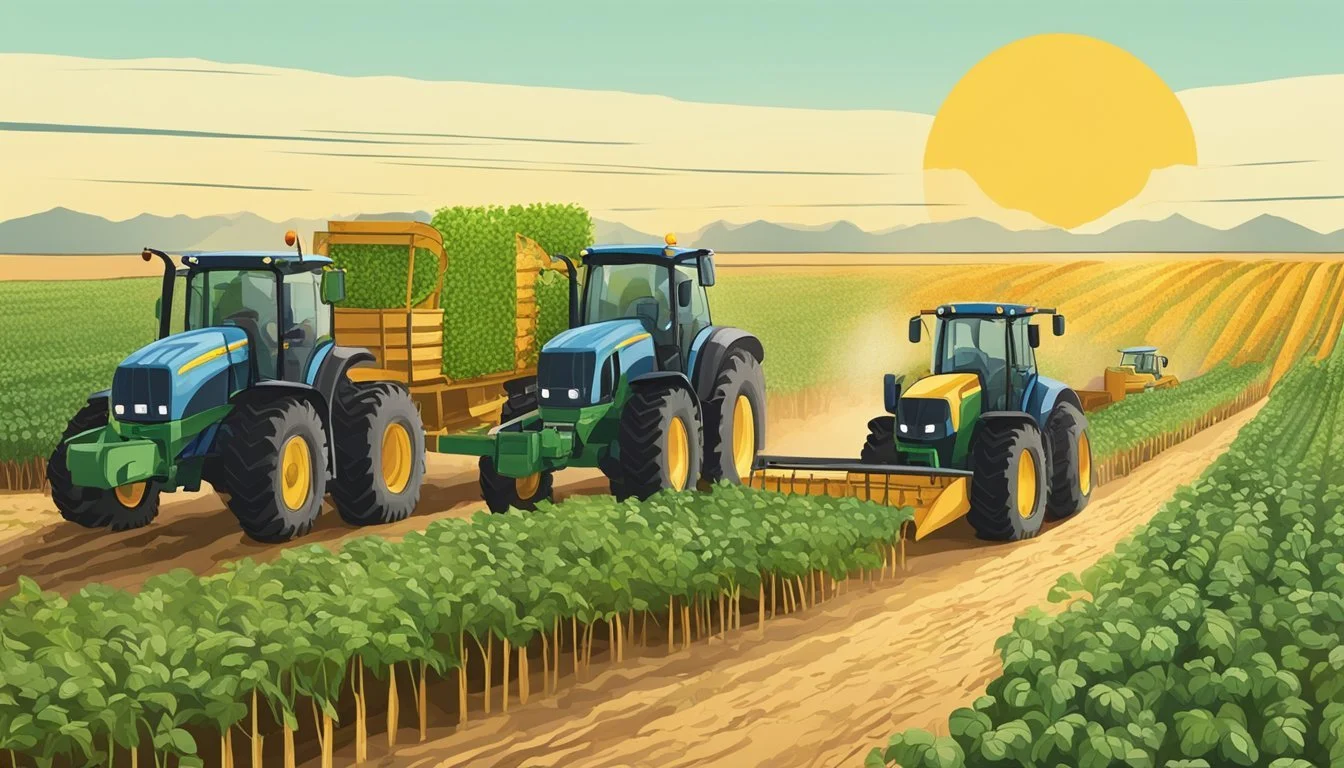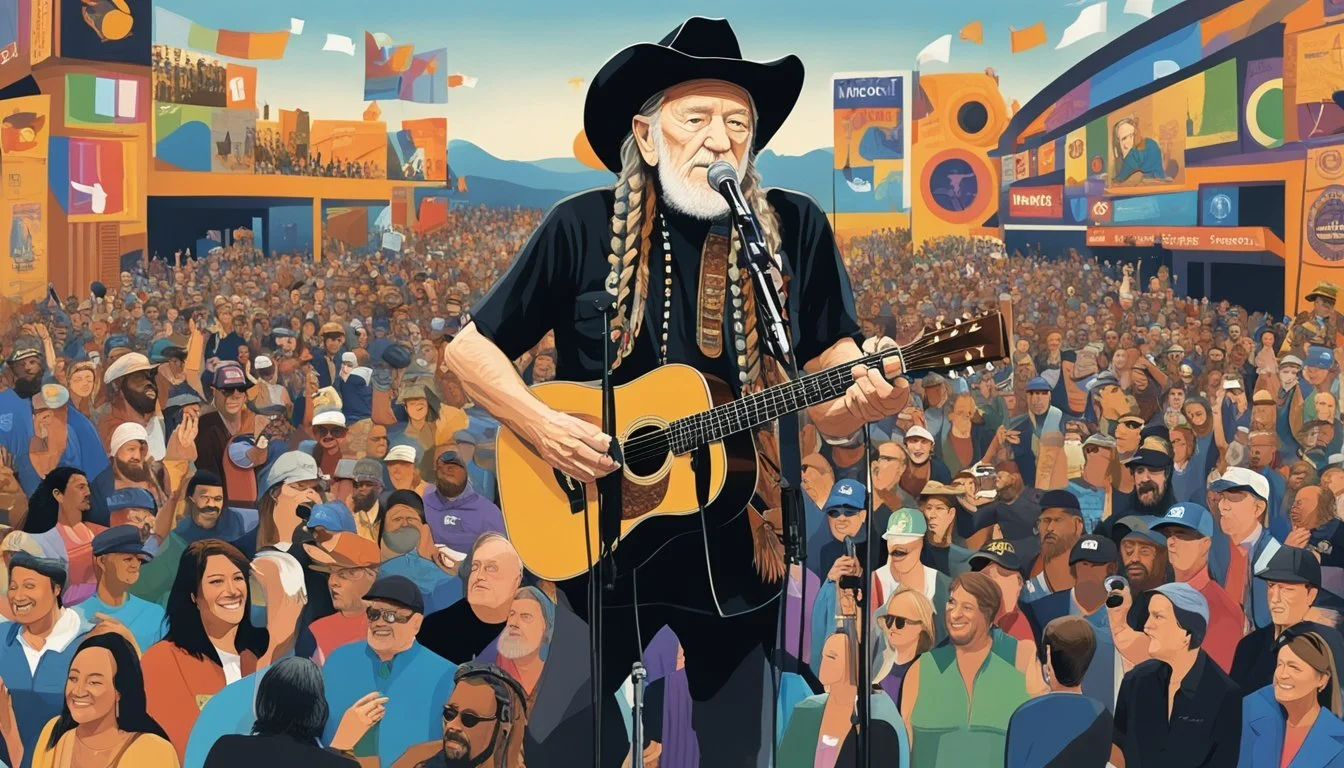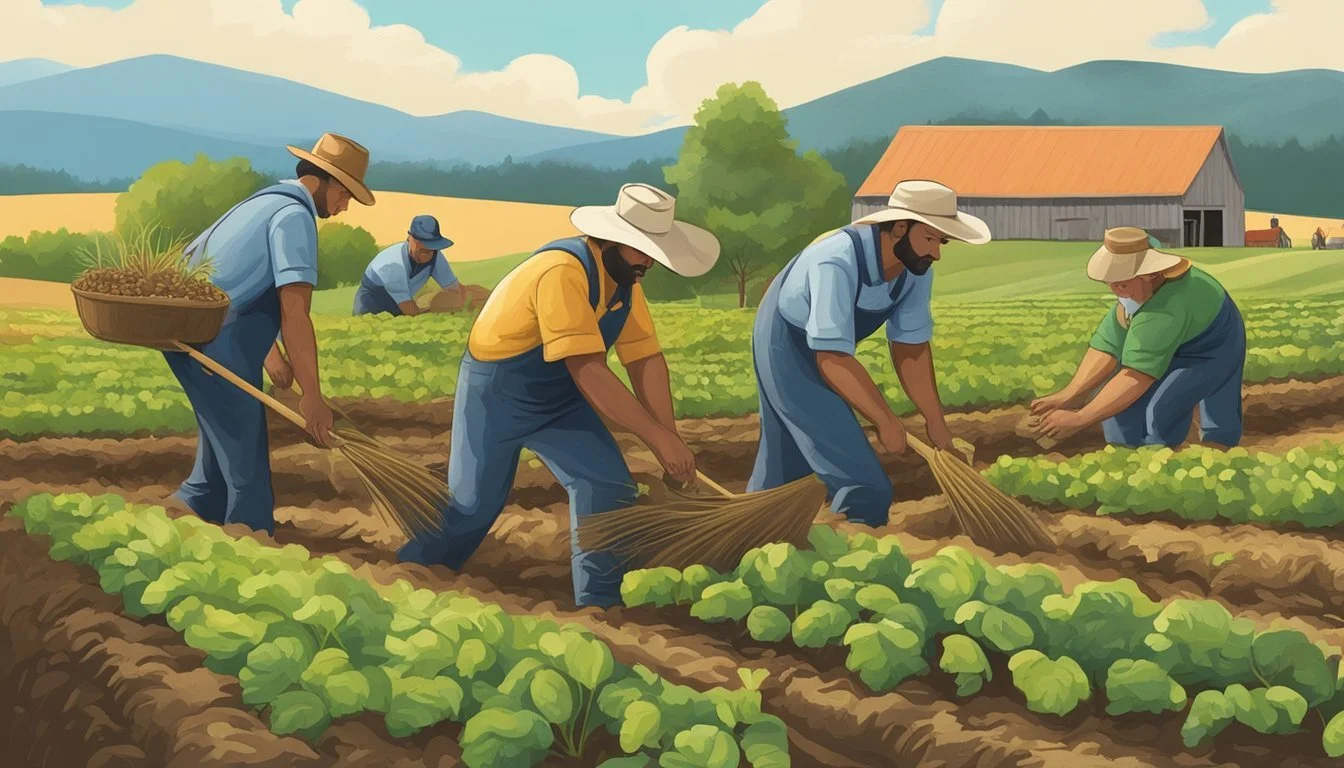Willie Nelson Fair Labor Practices: The Country Legend Fighting for Justice!
Willie Nelson, the iconic country music legend, has long been a champion for fair labor practices, particularly in the agricultural sector. His passion for supporting family farms and advocating for ethical treatment of workers stems from his own humble beginnings in rural Texas. Through initiatives like Farm Aid, Nelson has raised awareness about the challenges faced by small-scale farmers and helped generate millions of dollars in support.
Nelson's commitment to fair labor extends beyond the music industry. He has used his platform to shine a spotlight on the often-overlooked issues affecting agricultural workers and small family farms across America. By organizing benefit concerts and partnering with various organizations, Nelson has worked tirelessly to promote sustainable farming practices and ensure fair compensation for those who work the land.
The impact of Willie Nelson's advocacy for fair labor practices in agriculture has been significant. His efforts have helped bring national attention to the struggles of family farms and the importance of supporting local agriculture. Nelson's work continues to inspire a new generation of activists and musicians to use their voices for positive change in labor practices across various industries.
Early Life and Career of Willie Nelson
Willie Nelson's journey from small-town Texas to country music stardom shaped his musical style and social values. His early experiences and rise to fame laid the groundwork for his later activism and advocacy efforts.
Musical Roots and Ascent to Fame
Willie Nelson was born on April 29, 1933, in Abbott, Texas. Raised by his grandparents, he was immersed in music from a young age. Nelson learned to play guitar at 6 and wrote his first song at 7.
In his teens, he performed at local dances and on radio shows. After a stint in the Air Force, Nelson moved to Nashville in 1960 to pursue a music career. He initially found success as a songwriter, penning hits for other artists.
Nelson's breakthrough as a performer came in the 1970s with albums like "Shotgun Willie" and "Red Headed Stranger." His unique vocal style and blend of country, folk, and jazz earned him a devoted following.
From Country Singer to Social Advocate
As Nelson's fame grew, so did his interest in social causes. In 1985, he co-founded Farm Aid, a benefit concert to support family farmers. This marked the beginning of his activism.
Nelson's advocacy extended to environmental issues, LGBT rights, and marijuana legalization. He used his platform to raise awareness and funds for various causes.
His music often reflected his social views, with songs addressing political and environmental themes. Nelson's transition from country star to activist solidified his status as a cultural icon beyond the music world.
Establishment of Farm Aid
Willie Nelson founded Farm Aid in 1985 to support American family farmers facing economic crisis. The organization holds annual benefit concerts and provides grants to promote sustainable agriculture.
Foundation and Mission
Willie Nelson organized the first Farm Aid concert on September 22, 1985 in Champaign, Illinois. He partnered with fellow musicians John Mellencamp and Neil Young to raise awareness about the plight of family farmers.
The inaugural event featured over 50 artists and raised $7 million for American farm families. Farm Aid's mission focused on keeping family farmers on their land through financial assistance and advocacy.
The organization expanded its efforts to address long-term agricultural issues. It promoted sustainable farming practices and fair prices for farm products.
Impact on American Agriculture
Farm Aid has distributed over $60 million in grants since 1985. These funds support family farms, rural service organizations, and urban agriculture initiatives.
The annual benefit concerts continue to draw major artists and media attention to agricultural issues. Farm Aid advocates for policies that support small and mid-sized farms.
The organization provides resources to help farmers adopt sustainable practices. It also works to expand markets for family farm products through promotion of local food systems.
Farm Aid's hotline offers support and referrals to farmers in crisis. The group's efforts have helped thousands of farm families stay on their land over the past four decades.
Advocacy for Fair Labor in Farming
Willie Nelson has championed fair labor practices in agriculture for decades. His efforts focus on supporting family farmers and challenging corporate dominance in the industry.
Support for Family Farmers
Farm Aid, co-founded by Willie Nelson in 1985, advocates for family farmers' rights and livelihoods. The organization raises millions through annual benefit concerts to provide financial assistance and resources to small-scale producers.
Farm Aid communicates with policymakers to promote sustainable agriculture and fair market practices. Their advocacy has influenced legislation like the Farm Credit Act Amendments of 1987, offering debt restructuring for struggling farmers.
The organization provides emergency grants to help farmers cover essential expenses during difficult times. These funds assist with keeping homes operational, paying medical bills, and ensuring food security for farming families.
Campaign Against Corporate Greed
Willie Nelson's activism extends to challenging corporate control in agriculture. He advocates for policies that limit the power of large agribusinesses and promote equitable opportunities for small farmers.
Farm Aid's initiatives highlight the importance of local food systems and sustainable farming methods. This approach aims to create a more balanced agricultural landscape, reducing dependency on corporate-dominated supply chains.
The organization urges consumers and policymakers to support family farm-centered agriculture. By promoting direct farmer-to-consumer relationships, Nelson's efforts help build a more resilient and fair food system.
Willie Nelson's Environmental Activism
Willie Nelson has been a prominent advocate for environmental causes throughout his career. His efforts have focused on promoting sustainable agricultural practices and raising awareness about environmental issues.
Promotion of Sustainable Farming
Willie Nelson co-founded Farm Aid in 1985, an annual benefit concert that supports family farmers and sustainable agriculture. The event has raised millions of dollars and continues to be a cornerstone of Nelson's environmental activism.
Farm Aid not only provides financial assistance but also educates the public about the importance of small-scale farming and its impact on the environment. Nelson's involvement has helped spotlight the challenges faced by family farmers and the need for sustainable agricultural policies.
Through Farm Aid, Nelson has collaborated with various organizations to promote eco-friendly farming methods. These partnerships have led to initiatives supporting local food systems and reducing the use of harmful pesticides and fertilizers.
Advocacy for Organic Farming and Soil Conservation
Nelson has been a vocal proponent of organic farming practices. He has used his platform to highlight the benefits of organic agriculture for both human health and the environment.
The singer has supported research into soil conservation techniques, recognizing the crucial role healthy soil plays in sustainable farming. He has emphasized the importance of practices like crop rotation and cover cropping to maintain soil fertility.
Nelson's advocacy extends to promoting renewable energy in agriculture. He has championed the use of biodiesel fuel, demonstrating its potential as an environmentally friendly alternative to traditional diesel.
His efforts have inspired many farmers to adopt more sustainable practices, contributing to a growing movement towards organic and regenerative agriculture across the United States.
Entrepreneurial Ventures and Alternative Energy
Willie Nelson's entrepreneurial spirit extends beyond music into sustainable energy initiatives. His ventures promote eco-friendly alternatives to traditional fossil fuels.
BioWillie and Biodiesel Promotion
Willie Nelson launched BioWillie, a biodiesel fuel made from vegetable oils, in 2004. This venture aimed to provide a cleaner-burning alternative for diesel engines, particularly targeting truckers and farmers.
BioWillie was distributed at truck stops across several states. The fuel reduced emissions and supported American farmers by creating demand for their crops.
Nelson actively promoted biodiesel through media appearances and events. He highlighted its benefits for the environment and rural economies.
Despite initial success, BioWillie faced challenges due to fluctuating oil prices and production costs. The venture eventually scaled back, but it raised awareness about biofuels.
Investments in Renewable Energy
Nelson has invested in various renewable energy projects beyond biodiesel. He supports solar and wind power initiatives, recognizing their potential to reduce reliance on fossil fuels.
The singer-songwriter has installed solar panels on his ranch in Texas. This personal commitment demonstrates his belief in clean energy solutions.
Nelson has also advocated for increased government support of renewable energy research and development. He uses his platform to encourage both individuals and businesses to adopt sustainable practices.
His involvement in renewable energy aligns with his long-standing support for family farmers. Many of these projects create new income streams for rural communities through wind farms and biofuel crop production.
Cultural Impact and Collaborations
Willie Nelson's influence extends far beyond country music, shaping American culture and fostering meaningful partnerships across genres and causes.
Influence on Music and Culture
Willie Nelson redefined country music, blending traditional sounds with rock, jazz, and folk elements. His distinctive voice and unconventional style inspired countless artists to push boundaries. Nelson's outlaw country movement challenged Nashville's polished image, encouraging authenticity in songwriting and performance.
Nelson's impact transcends music. He became a cultural icon, symbolizing individualism and resilience. His advocacy for farmers through Farm Aid concerts raised awareness of rural issues. Nelson's open support for marijuana legalization helped shift public opinion on the topic.
Partnerships with Other Artists and Activists
Willie Nelson's collaborative spirit led to groundbreaking musical partnerships. He recorded duets with diverse artists like Julio Iglesias, Snoop Dogg, and Norah Jones, bridging genre gaps. His work with Waylon Jennings in The Highwaymen supergroup showcased country legends uniting.
Nelson's activism fostered partnerships beyond music. He joined forces with environmental groups to promote biodiesel fuel. His friendship with Dave Matthews resulted in joint performances at Farm Aid, amplifying the event's reach. Nelson's collaborations often blend art with advocacy, using his platform to support causes close to his heart.
Ongoing Issues and Challenges
Willie Nelson's advocacy for fair labor practices in agriculture faces complex environmental and economic hurdles. Farmers grapple with the impacts of a changing climate while confronting market instabilities that threaten their livelihoods.
Addressing the Effects of Climate Change
Climate change poses significant challenges for American agriculture. Rising temperatures and shifting weather patterns disrupt traditional growing seasons. Farmers must adapt their practices to maintain crop yields and quality. Willie Nelson has used his platform to raise awareness about these issues at Farm Aid concerts.
Extreme weather events like floods and hurricanes damage crops and infrastructure. This increases financial strain on farmers already operating on thin margins. Environmental stewardship becomes crucial as agriculture seeks sustainable solutions. Cover cropping and reduced tillage help improve soil health and carbon sequestration.
Combating Droughts and Market Fluctuations
Prolonged droughts severely impact water availability for irrigation. Farmers in many regions face difficult decisions about water usage and crop selection. Willie Nelson has advocated for policies supporting water conservation and efficient irrigation systems.
Low commodity prices and market volatility create economic uncertainty for farmers. Global trade disputes and changing consumer preferences affect demand for agricultural products. Farm Aid provides resources to help farmers diversify income streams and access new markets.
Nelson continues to champion fair prices for farmers to ensure the viability of family farms. His efforts highlight the need for policies that balance environmental protection with agricultural productivity.
Roles in Media and Public Perception
Willie Nelson's influence extends beyond music into media and public awareness. His presence in various forms of media has shaped perceptions of both himself and important causes he champions.
Diverse Portrayals in Documentaries and Films
Willie Nelson has been featured in numerous documentaries and films, showcasing different facets of his life and career. These productions often highlight his advocacy for American farmers and fair labor practices. The 2008 documentary "Fuel" showcased Nelson's support for biodiesel and sustainable agriculture. In 2023, the five-part docuseries "Willie Nelson & Family" provided an intimate look at his life, music, and activism.
Nelson's appearances in fictional films like "The Electric Horseman" (1979) and "Honeysuckle Rose" (1980) further cemented his cultural icon status. These diverse media portrayals have helped shape public perception of Nelson as both an artist and an advocate.
Publications and Autobiography
Willie Nelson's written works have significantly impacted his public image and spread awareness of his causes. His 1988 autobiography, "Willie: An Autobiography," offered readers personal insights into his life and values. Nelson has authored or co-authored several books, including "The Facts of Life: and Other Dirty Jokes" (2002) and "It's a Long Story: My Life" (2015).
These publications have allowed Nelson to directly communicate his thoughts on fair labor practices and support for American farmers. His books often touch on his experiences growing up in a farming community, providing context for his advocacy. Through these works, Nelson has effectively used media to shape public perception and draw attention to important agricultural issues.
Supporting the Community
Willie Nelson's commitment to fair labor practices extends beyond the music industry into supporting local communities and educating the public about agriculture. His efforts focus on addressing food insecurity and promoting agricultural knowledge.
Affiliation with Food Banks
Willie Nelson partners with food banks across the United States to combat hunger. He regularly donates proceeds from concert ticket sales to local food banks in the cities where he performs. This initiative has provided millions of meals to families in need.
Nelson also organizes food drives at his Farm Aid concerts, encouraging attendees to bring non-perishable items. These donations are distributed to nearby food banks and pantries.
In 2020, Nelson launched a virtual benefit concert series called "At Home with Farm Aid." The event raised funds for food banks struggling to meet increased demand during the COVID-19 pandemic.
Educational Efforts in Agriculture
Willie Nelson supports agricultural education through various programs. He collaborates with universities to offer scholarships for students pursuing degrees in sustainable agriculture and food systems.
Farm Aid, co-founded by Nelson, provides resources and workshops for farmers to learn about sustainable practices. These educational initiatives cover topics such as:
Organic farming techniques
Soil conservation methods
Water management strategies
Alternative energy solutions for farms
Nelson also advocates for including agricultural education in public school curricula. He has spoken at schools about the importance of understanding food production and has helped establish school gardens in underserved communities.











